
From Wagh Bakri to Vadilal: How Gujarat's next-gen is reshaping family businesses
The younger generations of family businesses are expanding into new markets, while introducing innovative technology and marketing ideas
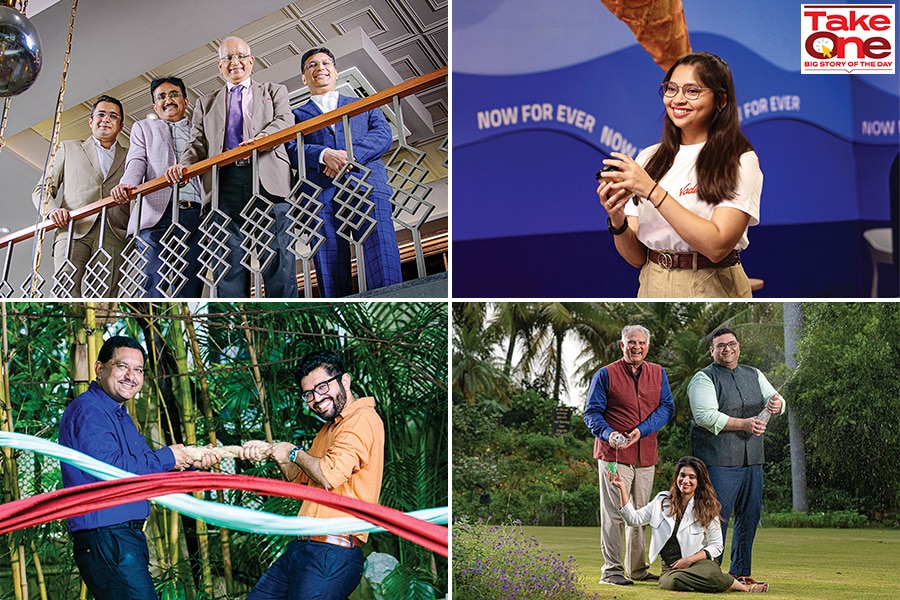 (Clockwise) The Desais of Wagh Bakri; Aakanksha Gandhi of the Vadilal Group; The Shahs of Symphony Fabrics; The Mehtas of Aava Water
(Clockwise) The Desais of Wagh Bakri; Aakanksha Gandhi of the Vadilal Group; The Shahs of Symphony Fabrics; The Mehtas of Aava Water
Gujarat is full of family businesses that were founded over 100 years ago, when priorities, approach towards innovation and business models were very different. With the country’s evolving landscape came new opportunities and challenges, thus changing the game for every generation. But what has remained constant with most family businesses is the core value system.
“The next generation’s role is that of renewal and to be the voice of the new generation, modern customers and competition. We believe they understand the legacy because they are family, but they can be change agents to make sure the family enterprises continue being successful,” says Rajan Vasa, office managing partner, Gujarat, KPMG in India.
The challenge for the next generation has been to find the right balance between sticking to the core values while still implementing much-needed changes to create value for their business. Forbes India looks at some Ahmedabad-based next generation entrepreneurs
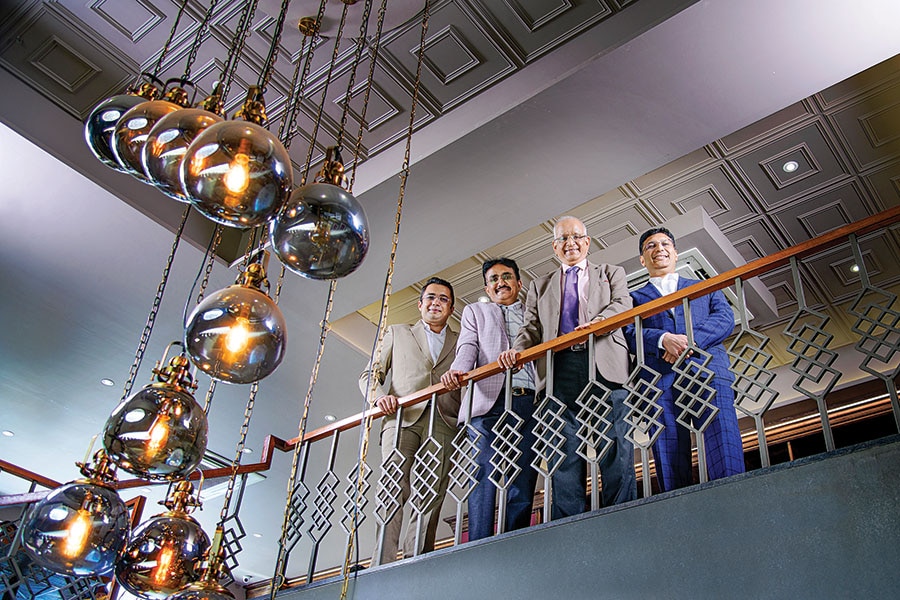 (From left) Priyam, Parag, Rasesh and Paras Desai have expanded their brand slowly and steadily
(From left) Priyam, Parag, Rasesh and Paras Desai have expanded their brand slowly and steadily
Wagh Bakri: Carrying on the 131-year-old legacy
By Naandika Tripathi
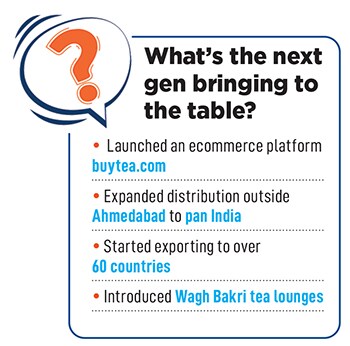 After pursuing his master’s degree from New York’s Long Island University, Parag joined the business in 1995, when it was less than Rs 100 crore. “Our revenue is more than Rs 2,000 crore now.” He took charge of expanding the business outside Ahmedabad and introduced the ecommerce platform buytea.com 20 years ago. The brand has a presence across 24 states in India, exports to over 60 countries, and sold 48 million kg of tea last year. It took the approach of expanding slowly and steadily. For instance, after spending a good 10 years in Rajasthan and Madhya Pradesh, the brand moved to Maharashtra and Delhi. The main concern was to test the waters and develop a robust distribution network.
After pursuing his master’s degree from New York’s Long Island University, Parag joined the business in 1995, when it was less than Rs 100 crore. “Our revenue is more than Rs 2,000 crore now.” He took charge of expanding the business outside Ahmedabad and introduced the ecommerce platform buytea.com 20 years ago. The brand has a presence across 24 states in India, exports to over 60 countries, and sold 48 million kg of tea last year. It took the approach of expanding slowly and steadily. For instance, after spending a good 10 years in Rajasthan and Madhya Pradesh, the brand moved to Maharashtra and Delhi. The main concern was to test the waters and develop a robust distribution network.

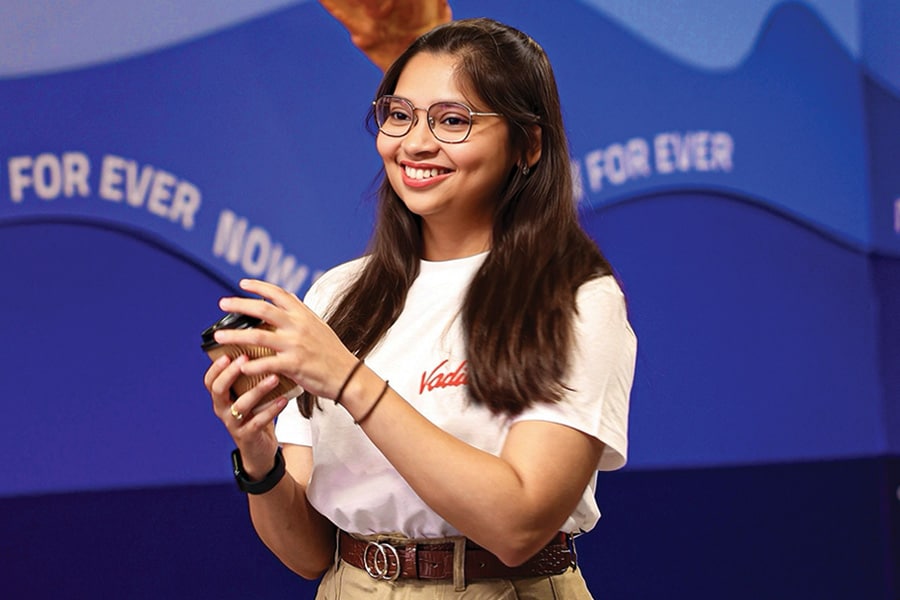
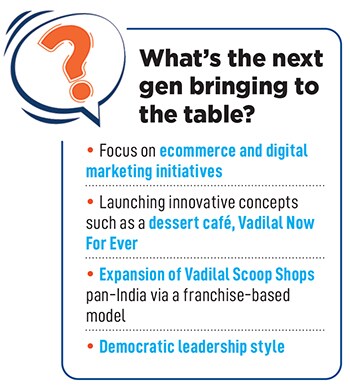 The company dates back to 1907. From a fountain soda shop in Ahmedabad to making traditional kothi-based ice cream (using a hand-operated machine to churn milk with other ingredients), Vadilal is one of the most popular ice cream brands nationally.
The company dates back to 1907. From a fountain soda shop in Ahmedabad to making traditional kothi-based ice cream (using a hand-operated machine to churn milk with other ingredients), Vadilal is one of the most popular ice cream brands nationally.

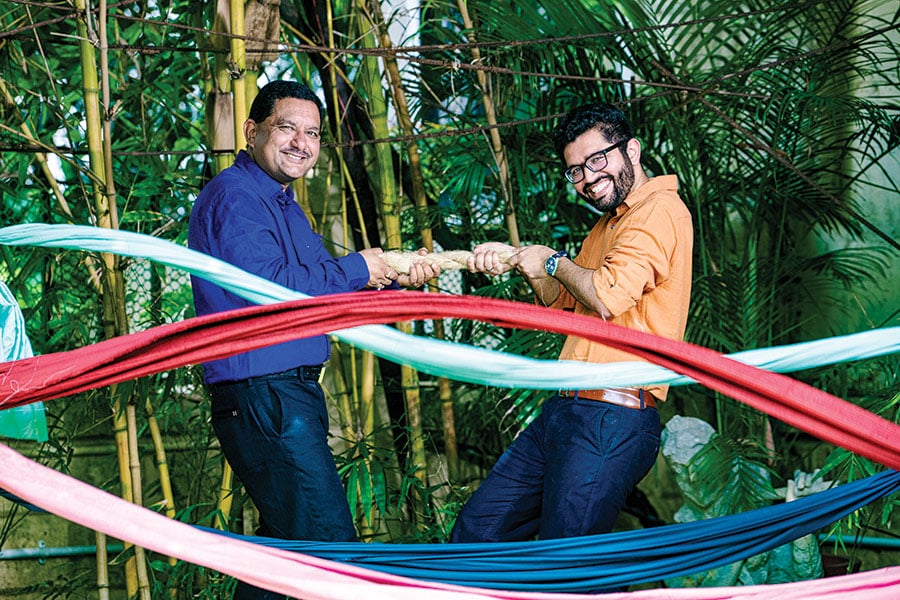
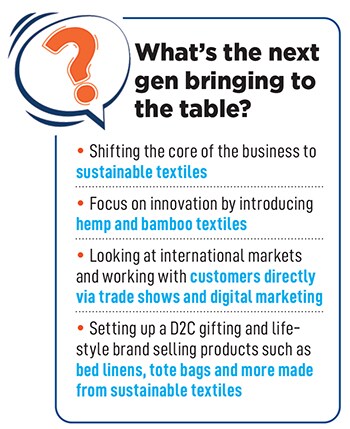 Around 2017, sustainability wasn’t a new concept, but sustainable textiles were still at a relatively nascent stage in the Indian market. “We started R&D for hemp fabrics, and invested more than Rs 40 lakh in it. It was very difficult to run hemp on the looms,” says Shah. The existing business has been manufacturing corduroys for massive industry players such as BVM, Arvind, M&S and other export houses for years.
Around 2017, sustainability wasn’t a new concept, but sustainable textiles were still at a relatively nascent stage in the Indian market. “We started R&D for hemp fabrics, and invested more than Rs 40 lakh in it. It was very difficult to run hemp on the looms,” says Shah. The existing business has been manufacturing corduroys for massive industry players such as BVM, Arvind, M&S and other export houses for years.

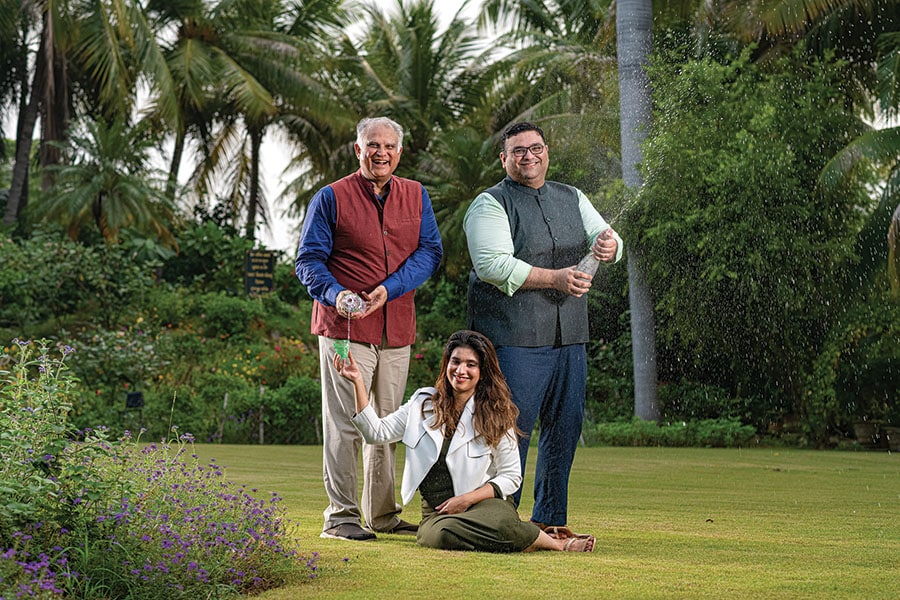
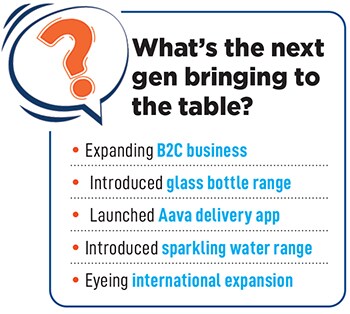 Aava Water, which is run by two generations, has been focussed on its B2B business and is now aggressively expanding its B2C reach. “When I joined in 2011, we were a completely different outfit, with 90 percent of our sales coming from B2B clients like Jet Airways, Air India, Four Seasons and so on, with a heavy dependence on a few clients,” says Shiroy (33), Behram’s son. After taking a call to change the client mix, 50 percent of the business is now generated from B2C.
Aava Water, which is run by two generations, has been focussed on its B2B business and is now aggressively expanding its B2C reach. “When I joined in 2011, we were a completely different outfit, with 90 percent of our sales coming from B2B clients like Jet Airways, Air India, Four Seasons and so on, with a heavy dependence on a few clients,” says Shiroy (33), Behram’s son. After taking a call to change the client mix, 50 percent of the business is now generated from B2C.





